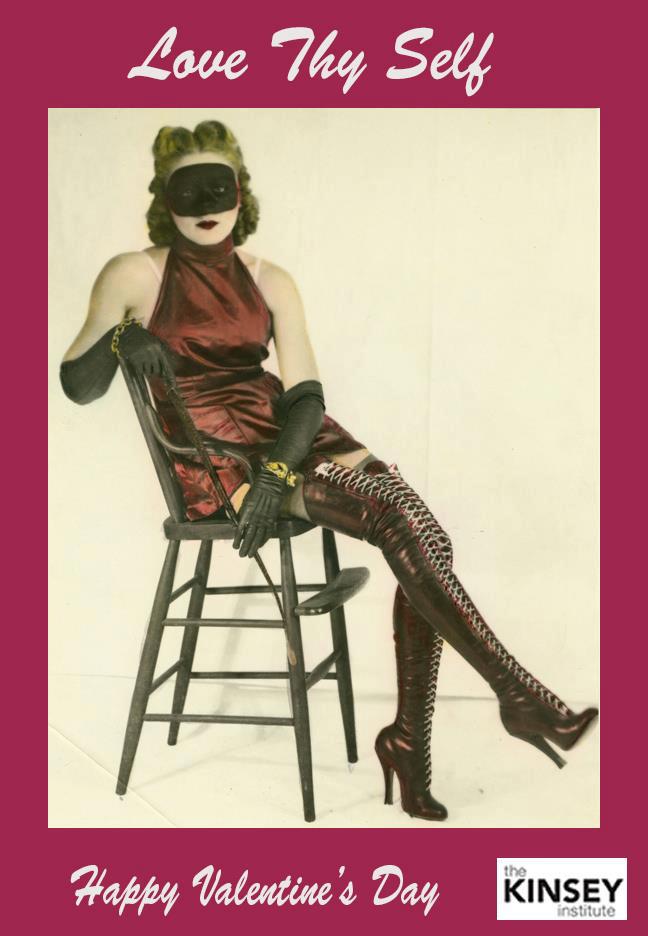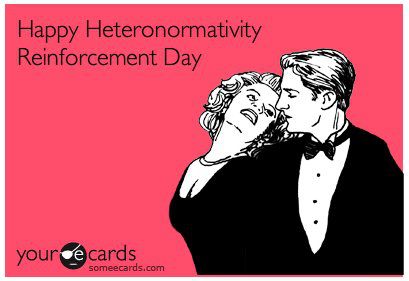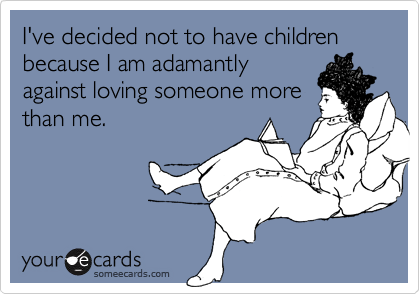 The reasons to despise this day are probably too numerous to list in a short post, and the web is already awash with critical analyses of the problems of Saint V (I agree with everything Priyamvada Gopal says in the Guardian, for example), so I shall confine myself here to drawing attention to a mere sample of the most egregious:
The reasons to despise this day are probably too numerous to list in a short post, and the web is already awash with critical analyses of the problems of Saint V (I agree with everything Priyamvada Gopal says in the Guardian, for example), so I shall confine myself here to drawing attention to a mere sample of the most egregious:
1) It is a meaningless, arbitrary, commercial junket designed to persuade people to part with their cash in celebration of a faux, cliché-ridden, romantic “holiday”. It is Hallmark’s dream and the critical thinker’s nightmare. Restaurants are packed to bursting with grinning, hand-holding sheep, gazing into each other’s eyes over stubby candles and trying to forget how much they despise each other the rest of the year – for the good of the children and the mortgage. Food-shopping also becomes a nightmare on this date, as one desperate, manic-eyed couple wrestles viciously with another for the last dressed lobster or bottle of special-offer champagne. (I witnessed this in Waitrose last year. I was tempted to distribute mogadons to all present.) In short, those who do not engage in this circus are not safe to eat out or buy food to cook at home on 14 February.
2) Valentine’s day marginalizes those who, through determined choice or otherwise, are not part of a couple and encourages people to locate their self-worth in their desirability to another person. The cultural effects of this, especially on the insecure, non-normative young, are invidious. Quoting Rae Earl’s My Mad, Fat Teenage Diary, which I was moved to read having watched the TV adaptation on 4OD, re: Valentine’s Day cards: “Mum got three. Loads of people at school got one. One cow got flowers. […] I’m just so jealous I could cry. Of course I didn’t get any. You get home and all the way back you are hoping – but no. Not a chance. I hate Valentine’s Day. It’s like a distorting mirror. It makes you feel even fatter than you already are”. The discourse of romantic love is traditionally aimed at and, in high capitalism, marketed to, young, heterosexual women. It promises a huge lie. It promises that being desired, and measuring oneself in terms of patriarchy-compliant fuckability, will materially and emotionally improve one’s life. Probably, the very opposite is true.
3) It  is heteronormative and mono-normative in design, even if individuals choose to adapt or creatively deform the way in which they celebrate it. While I am all in favour of queer inversions and subversions in general, some institutions/ customs are, to my mind, so full of rot that they are not worth the effort of recuperation. I’m afraid marriage comes under that heading for me too. If a system is built on dubious historical foundations (the ownership of women) and fosters ideological iniquities (tax breaks and unmerited social approbation for those who enter that state), then what is queer about grabbing a piece of the pie for yourselves, while leaving others (the single; those in non-standard, non-paired, non-mongomous relationships; the asexual) out in the cold? How is this even vaguely radical?
is heteronormative and mono-normative in design, even if individuals choose to adapt or creatively deform the way in which they celebrate it. While I am all in favour of queer inversions and subversions in general, some institutions/ customs are, to my mind, so full of rot that they are not worth the effort of recuperation. I’m afraid marriage comes under that heading for me too. If a system is built on dubious historical foundations (the ownership of women) and fosters ideological iniquities (tax breaks and unmerited social approbation for those who enter that state), then what is queer about grabbing a piece of the pie for yourselves, while leaving others (the single; those in non-standard, non-paired, non-mongomous relationships; the asexual) out in the cold? How is this even vaguely radical?
4) Loving somebody or several somebodies is great. Structuring your understanding of love around a set of culturally dictated norms borrowed from the outmoded, misogynistic discourse of “romance” or “courtly love” is not. And expressing that highly codified idea of love on one day of the year only is, frankly, ridiculous.
 5) If there is a holiday to celebrate happy, smug, conformist coupledom, why is there no holiday to celebrate how much one loves oneself? The answer is obvious. Hetero-repro-patriarchy does not want us being happy and at peace on our own (or in our friendship groups, or with our networks of lovers). In particular, hegemonic culture aggressively discourages primary narcissism, especially for women. Heteropatriarchy is threatened by asexuality, by alternative relationship structures, and by sexual dissidence. It wants us all to be obedient citizens: coupling up, paying taxes, buying houses, feeding the economy, and engaging in the ultimate secondary narcissism of producing children.
5) If there is a holiday to celebrate happy, smug, conformist coupledom, why is there no holiday to celebrate how much one loves oneself? The answer is obvious. Hetero-repro-patriarchy does not want us being happy and at peace on our own (or in our friendship groups, or with our networks of lovers). In particular, hegemonic culture aggressively discourages primary narcissism, especially for women. Heteropatriarchy is threatened by asexuality, by alternative relationship structures, and by sexual dissidence. It wants us all to be obedient citizens: coupling up, paying taxes, buying houses, feeding the economy, and engaging in the ultimate secondary narcissism of producing children.
Some of these points are obviously tongue-in-cheek, while others suggest issues we might genuinely want to think about more seriously. Most fundamentally, we need to change the cultural script so that people no longer ask: “What’s wrong with me because I’m alone on Valentine’s Day?”, but rather: “What’s wrong with a culture that encourages me to ask that sort of question?”.
Love it…and you might want to nip over to http://www.guardian.co.uk/commentisfree/2013/feb/13/fox-news-marrying-lesbians-kissing , where Ms Bindel and I have been taking some stick for making points i hope you would agree with about marriage as institution….
I will also drop you a line about something that seriously irritates me about VD.
janexx
Sometimes it’s another one of those critical-about-something-but-finding-pleasure-in-it-anyway paradoxes so common for feminist thinkers
So. Excellent.
Blimey, I’ve had more views of this post today than of any previous one, cumulatively!
I love those eCards!
Also, I’m definitely non-hetero-normative — a great big, muscular, nerdy, masculine-acting, autistic bisexual woman who has spent more of her life non-partnered than partnered, and who grew up not necessarily knowing I would ever have a romantic relationship, and not particularly caring unless I fell in love with a particular individual — and I’ve never felt even the slightest annoyance about Valentine’s Day. When I was a kid, my schools always mandated that you give cards — and, more importantly, candy — to everyone, and my family established a tradition that Mom (or Dad) would always get Valentine’s candy for the kids, too. So it’s always been a family holiday (and a kids’ holiday) for me, more than anything else.
(I did have a friend in high school who always got really bitter and depressed on Valentine’s Day, and I wanted to buy her a bouquet of roses to have sent to her in class. I never made up my mind whether it would make her happy, or disappoint her to open them up and see that they were from me, though. So I think I settled for buying her a packet of M&Ms and giving them to her on the bus we both rode home.)
Anyway, I just felt like my being so completely outside the heteronormative mold might’ve made me more able to just enjoy Valentine’s Day for whatever it meant to me (i.e., chocolates from my mom) rather than comparing myself to an ideal and being sad because I fall short.